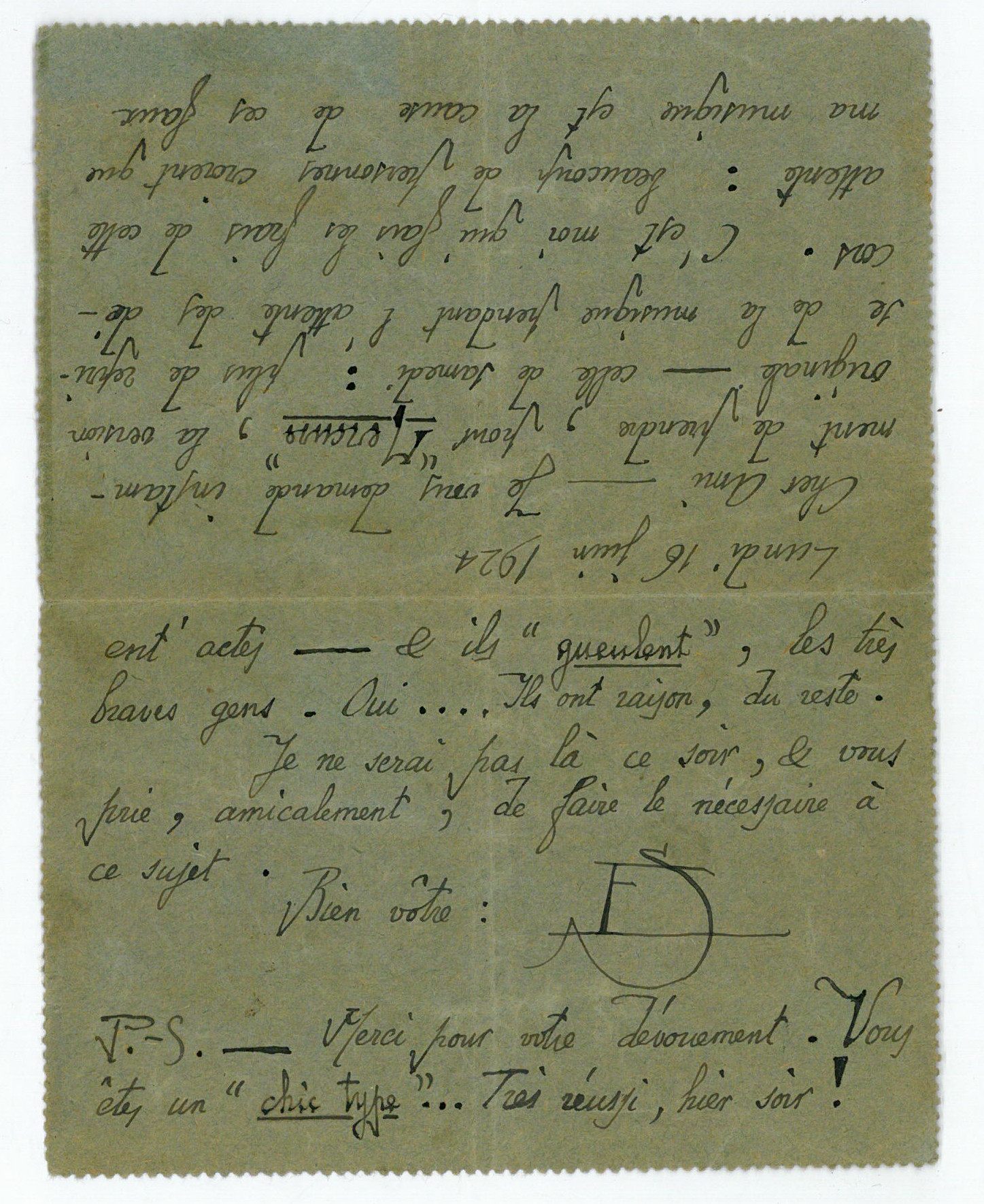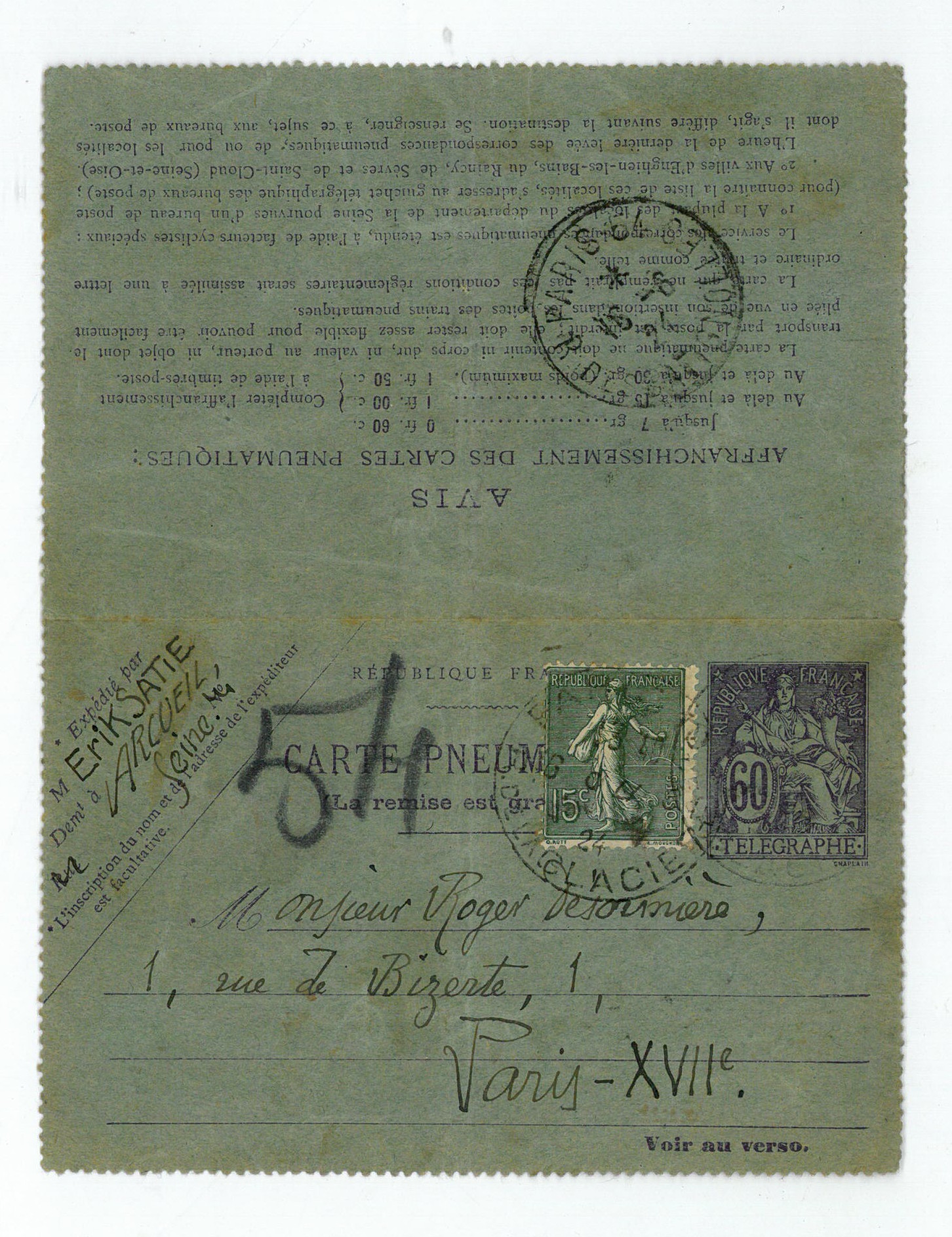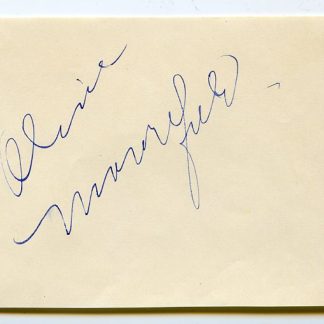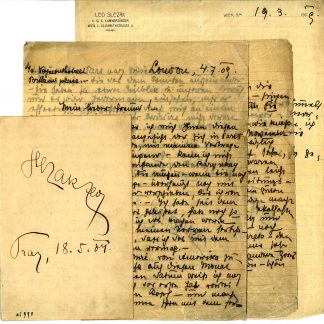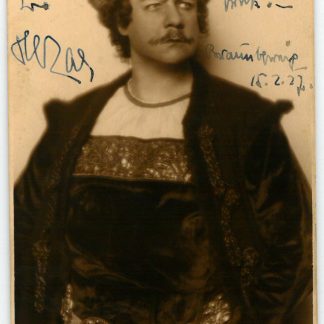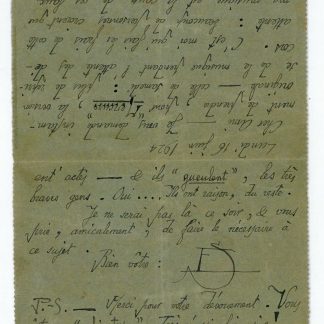Two days after the scandal: Satie's ballet Mercure
Autograph lettercard signed (address field) and monogrammed "ES".
12mo. 1 p. With autograph address. In French.
€ 8.500,00
Beautiful pneumatic letter to the conductor Roger Désormière written two days after the scandalous premiere of the ballet Mercure with instructions for the third performance. Satie asks Désormière to return to the original version of the premiere "without the repetitions of the music while waiting for the sets", as he is "the one who pays the price for this waiting time" because "many people believe" that Satie's "music is the cause of these false intermissions - & and they 'fulminate', the very good people". He even concedes to his vocal critics: "Yes... They are right, in fact". In a charming postscriptum, Satie thanks Désormière and congratulates him on the last night's performance: "Thank you for your dedication. You are a 'chic guy' ... Very successful last night!" (transl.).
With Satie's music, stage and costume design by Pablo Picasso, and a choreography by Léonide Massine who would also dance the principal role, Mercure was supposed to be the much-needed hit for Étienne de Beaumont's ballet company Soirées de Paris. However, the premiere provoked a theatrical scandal, as different cultural factions of the Parisian avantgarde clashed in the audience. Most notoriously, the Surrealists led by André Breton and Louis Aragon tried to win over Picasso and took aim at Satie for having criticized Breton's attempt to overthrow Tzara as leader of the Dadaists. The ballet had scarcely begun when the Surrealists started chanting "Bravo Picasso! Down with Satie!" from the back of the theatre. Darius Milhaud began to argue with the Breton group, Satie fans voiced their support, and a handful of people approached Picasso's box, hurling insults at him. Police were called to restore order before the performance could continue. While the following five performances of Mercure passed without incident, the reception of the ballet and particularly of Satie's music was cold and would have a lasting negative effect on his posthumous reputation. Mercure is the least known of Satie's three ballets and little performed, even if the music has been revaluated since the scandalous premiere.
Roger Désormière (1898-1963) joined the Ballets Russes as principal conductor in 1925. He kept Satie's ballet music in his repertoire.
Traces of folds and somewhat creased.
Correspondance presque complète, no. 1114.

